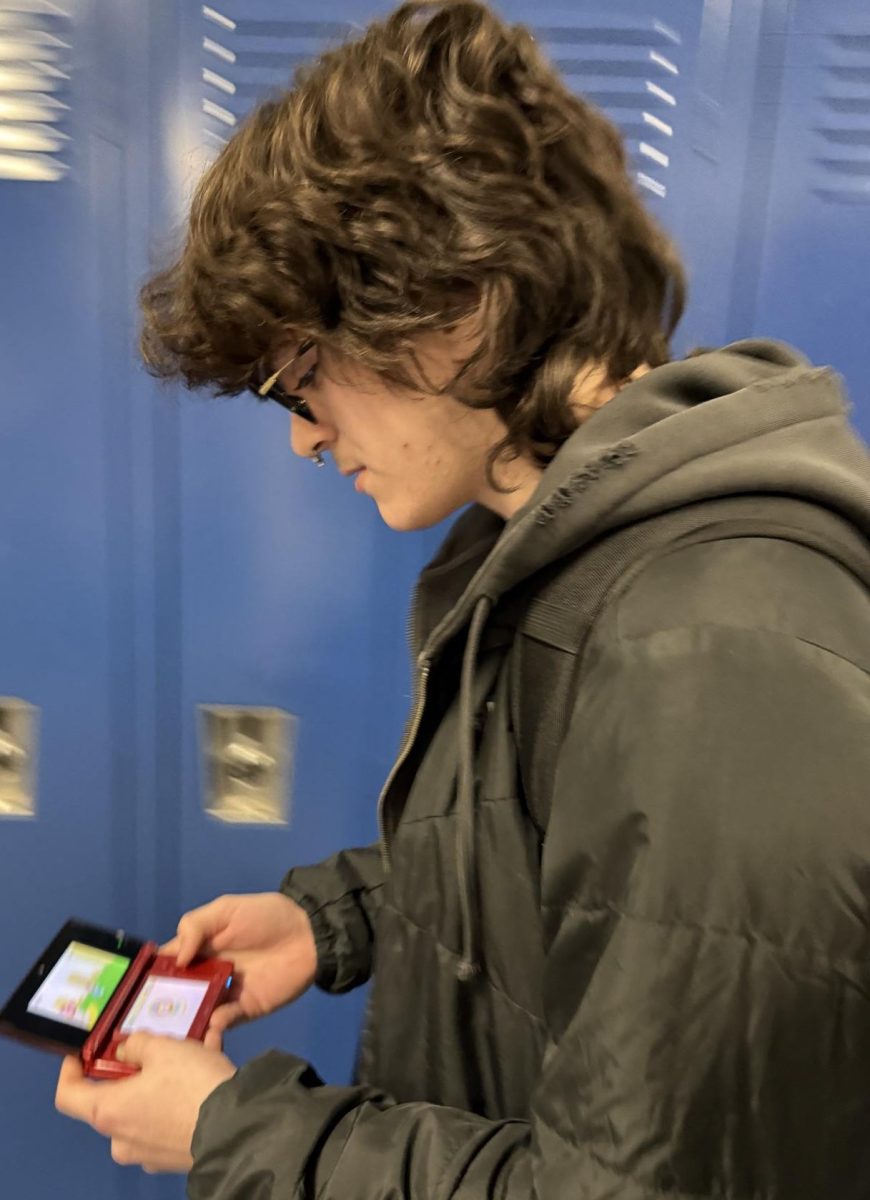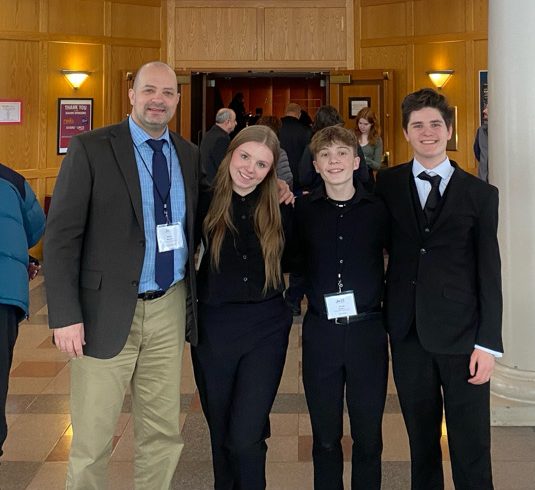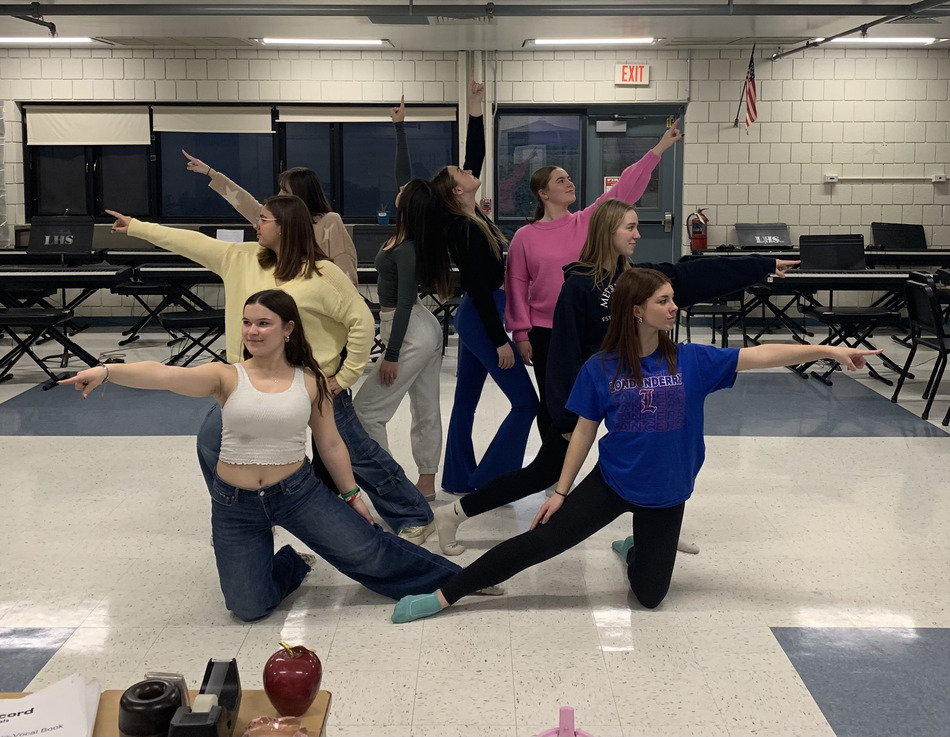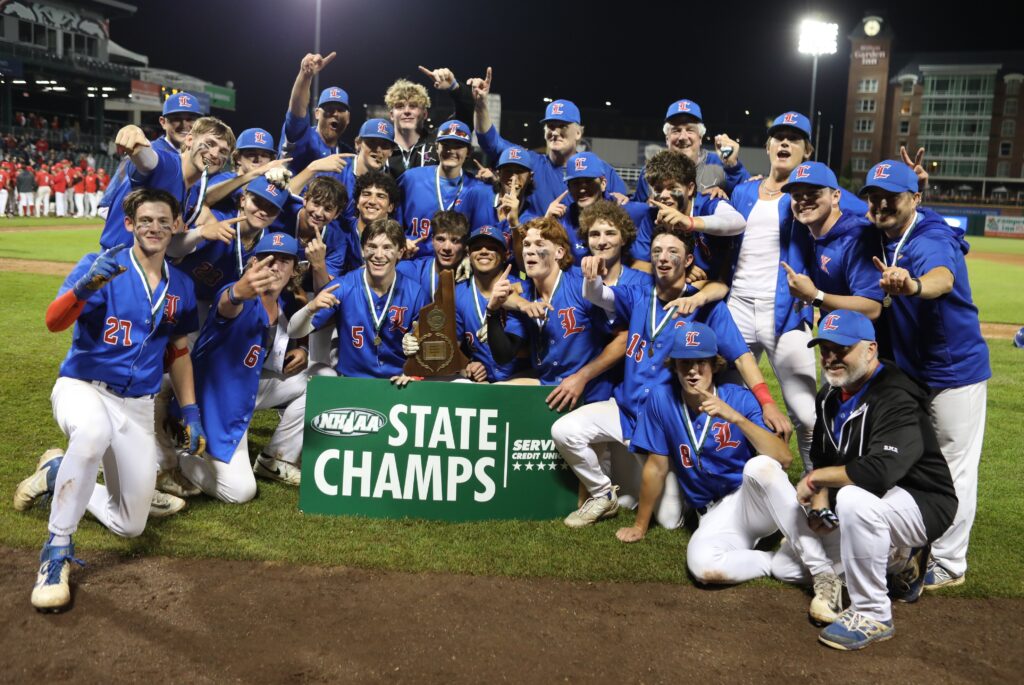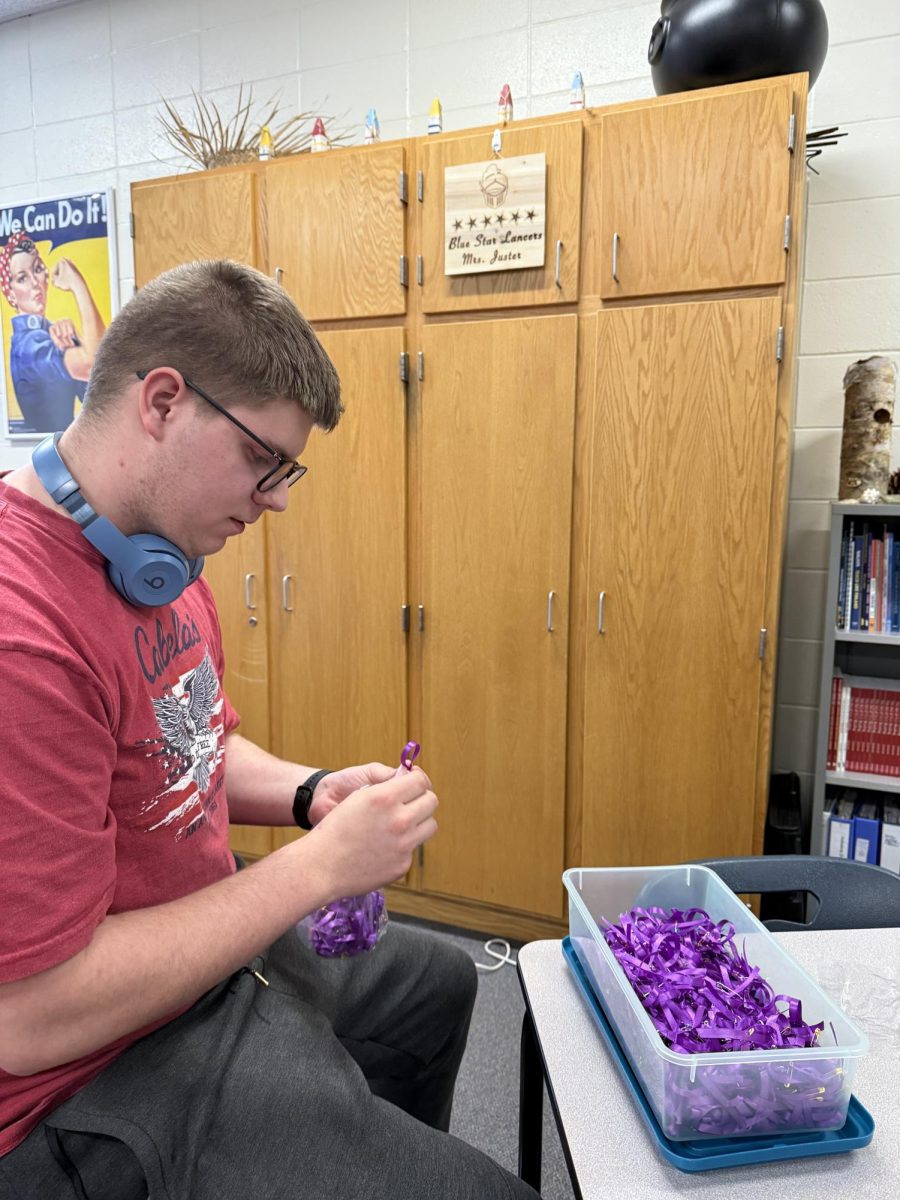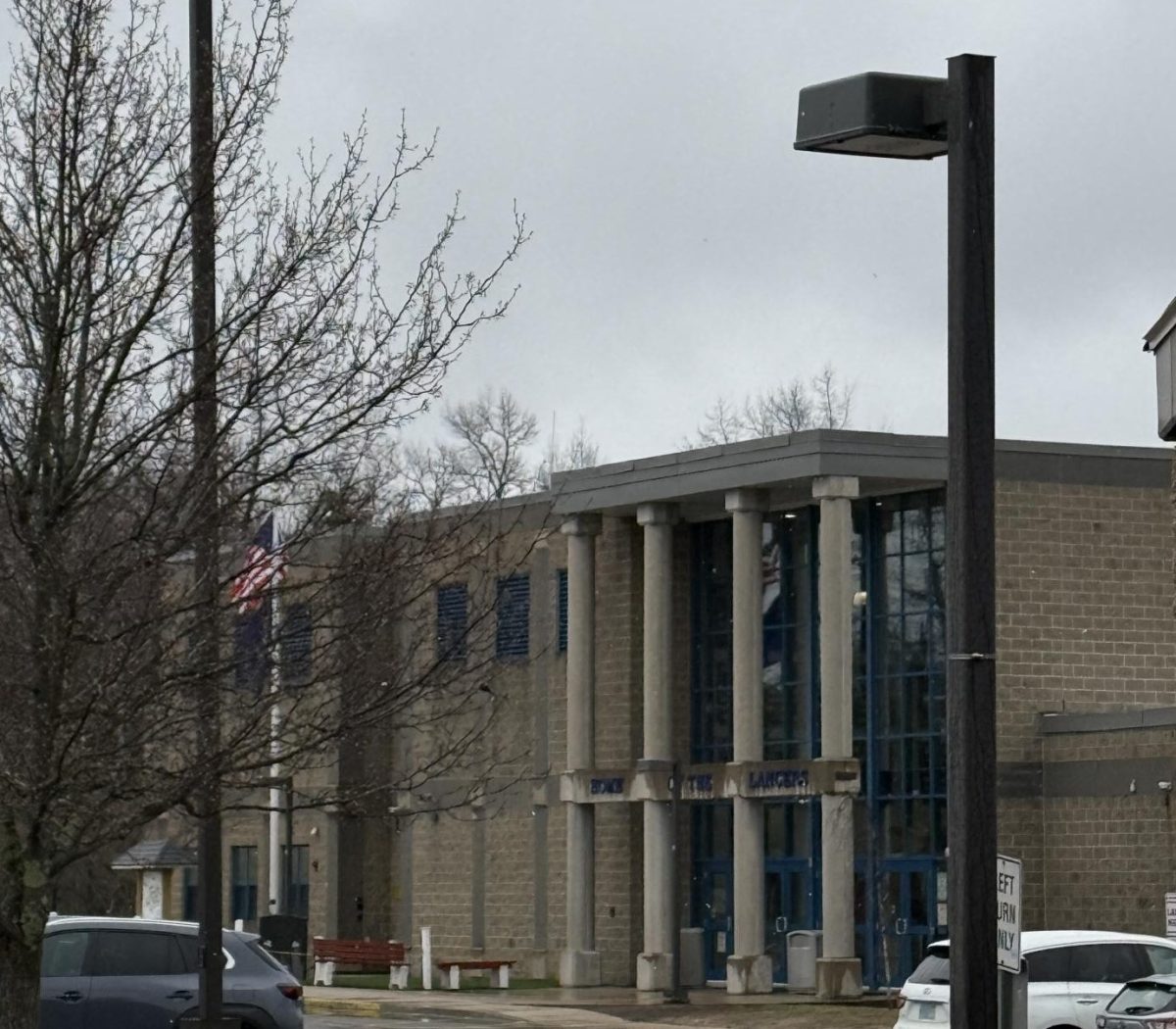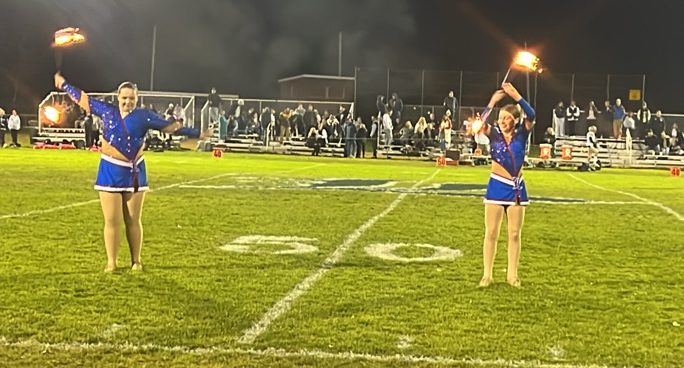The sound system hums through the stadium as the crowd settles in, waiting. Backstage, a young singer prepares to step into the spotlight. She runs through the opening note of the National Anthem—sharp, clear, focused. Water bottles line the table beside her, quiet proof of the work it’s taken to get here. She’s ready. In just a few steps, she’ll walk onto the field and let her voice carry through the stadium.
Rebecca [Beck] Solomons, a junior with a rare mix of musical and artistic talent, has quickly become a standout among her peers. Whether she’s belting out powerful melodies or expressing herself on canvas, Solomons has an inspiring way of influencing those around her. So, who is this emerging artist with so much potential, and what drives her to make such an impact?
Solomons has been passionate about singing since she was a young girl, with her love for music ignited by her obsession with Adele. At ages 11-12, she started singing lessons and participating in theater.
“I always wanted to sing [Adele’s] songs,” Solomons said.
Alongside music, she’s been passionate about drawing since second grade, filling sketchbooks with her creations.
“Art is a way to get out of my head,” Solomons said. “You can let loose a lot of emotions through singing and drawing, and it’s very therapeutic.”
As Solomons matured, her love for music and passion for art deepened. When high school arrived, she began auditioning for musicals.
In 2024, during her sophomore year, she starred in our school’s production of Mamma Mia, playing the lively Tanya, one of the lead characters, Donna’s, best friends.
“It was by far my favorite show,” Solomons said. “I hadn’t done a school musical since elementary school, so being a part of this production last year was very fun.”
She also performed in this year’s Footloose, playing Ethel McCormack, Ren’s supportive mother.
Outside of school, Solomons regularly performs at open-mic nights organized by the Jason R. Flood Memorial, an initiative promoting mental health through music. Additionally, she’s a dynamic member of the band The Hand Me Downs, joining as one of the lead singers.
“When we perform, we wear ties—that’s kind of our thing,” Solomons said.
One of her proudest moments came when she performed the National Anthem in Concord for the NHIAA student athlete awards, where she met the Governor of NH Kelly Ayotte.
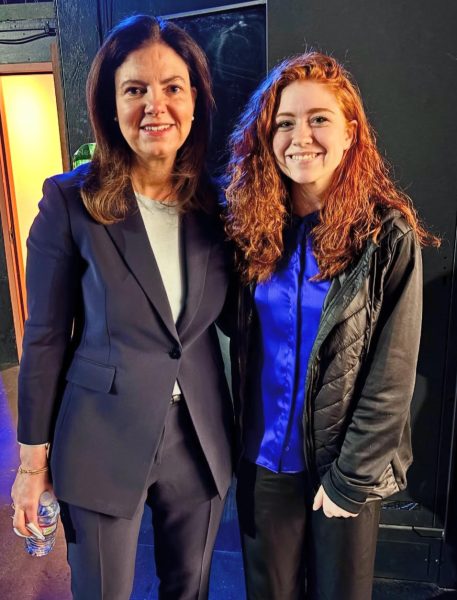
“I didn’t even realize she was there until after I finished the performance,” Solomons said, “which, honestly, was probably for the best. If I had known the governor was in the crowd, I would’ve been way more nervous.”
Though she seems calm and composed on stage, Solomons, like all performers, experiences nervousness. Yet she has a simple piece of advice for overcoming it.
“The biggest thing you can do for yourself is to go out of your comfort zone,” Solomons said. “You have to be very open to meet a lot of people, and you have to have confidence in yourself. And if you don’t have confidence, you have to push yourself to do it anyway.”
She certainly pushed herself when she performed the National Anthem at Gillette Stadium for the New England Revolution. In front of an audience of 15,000 people, plus another 30,000 tuning in online, Solomons was forced to confront her nerves.
“It was a crazy experience,” Solomons said. “It’s something I never expected I’d be doing.”
Special education teacher Robert Solomons has always been deeply inspired by his daughter. He loves seeing how her creativity and dedication shine through in everything she does, and it motivates him in his own work as well. Solomons’ enthusiasm for art constantly reminds him of the importance of nurturing one’s passions, and he couldn’t be more proud of her journey.
“I want my kids to find out what they love,” Mr. Solomons said. “I don’t believe in cliches, but there’s an old saying, ‘you do what you love and you’ll never work a day in your life.’”
He reflects on how performers, like Robert De Niro and Daniel Day-Lewis, often stay private, immersing themselves fully in their roles. He sees a similar pattern in his daughter, who, despite feeling potentially nervous before performing, overcomes her fear by becoming the character. This transformation helps her perform confidently, as seen when she played Lumière in a production of Beauty and the Beast, impressing him with her ability to embody the character fully.
Mr. Solomon’s appreciation for special moments goes beyond his daughter’s music. While her singing is truly inspiring, her creativity also shines in other areas. Her artistry is not limited to sound; it reflects a profound emotional connection to the world around her, making her work a richer form of self-expression.
Solomons created a heartfelt painting of the family dog, Frankie, for her father, who considered the dog his “best friend.” Tragically, Frankie passed away from cancer at the end of the year, and Solomons was unaware of his illness when she painted the piece. The painting holds deep emotional significance for her, especially after Frankie’s passing. Mr. Solomons recalls the strong bond he had with Frankie, who had been with him since he was just six weeks old.
“He has soulful eyes,” said Mr. Solomons, “and when people see the painting, they immediately notice them.”
The painting captured a tender moment when Frankie smelled a rose, a memory his wife had witnessed. Despite the difficulty of the timing, with Frankie passing just a week before Christmas, the gift became a source of comfort.
“It really moved me,” Mr. Solomons said. “If there was a fire, I’d grab two things—the external device with all our pictures and the picture she made of Frankie.”
The artwork became a lasting tribute to the dog’s quiet, soulful presence in their lives.
This passion for creativity and the deep emotional connections that art fosters is something that resonates beyond just Mr. Solomons’ personal experiences.
Art teacher Michelle Dyson recalls how Solomons’ unique approach to art left a profound impact on her. Dyson first met Solomons as a freshman and was immediately struck by her talent and dedication. Solomons has explored many art styles, from realism to abstraction, and Dyson admires how she sees the world with a unique perspective.
For example, when painting an animal in black and white, Solomons doesn’t just see black and white. She understands that the whites have subtle shades of pinks, peaches, violets, blues, and greens. These small tweaks of color are what make her work so lifelike.
“Beck is able to see those little fluctuations in color,” Dyson said. “It’s really important to not be afraid to play with the paint and see what it will do.”
Beyond her technical skill, Solomons’ kind and humble personality stands out. Dyson recalls how Rebecca always makes sure no one feels left out.
“If someone in class is sitting alone, she is the kind of person who will sit next to them,” Dyson said. “That can be scary, and you don’t see a lot of kids who will just go and sit next to someone they don’t know.”
Dyson’s admiration for Solomons’ kindness reflects the same authenticity she brings to her art. For Solomons, painting is not just a skill, but an emotional release—a way to communicate her feelings beyond words.
She views painting as a deeply personal experience, where her emotions guide the brush without premeditation. Art, for her, is not about perfection, but about expression in the moment. This genuine, unforced approach is at the core of her creative process, as she believes that art cannot be rushed or manipulated.
“You can’t force [emotions] in art,” Solomons said. “I don’t think of the emotions before making a piece, I just draw. You incorporate the feelings you have into it as you go.”
This intuitive approach to art mirrors her belief that creativity should come from within, not from external expectations. She advises aspiring artists to focus on their own voice and passion.
“I really just paint for myself,” Solomons said. “If you’re an artist, don’t listen to what everybody else wants you to paint. Just draw for yourself because art is about the artist.”
Through her music and art, Solomons teaches us that true creativity is about embracing what feels right, following your passion, and being authentic in the process. Whether singing or painting, she believes that mistakes are part of growth and learning.
“If you mess up, it’s experience points, and life goes on,” Solomons said. “It’s okay to fail—you do NOT have to be perfect.”






